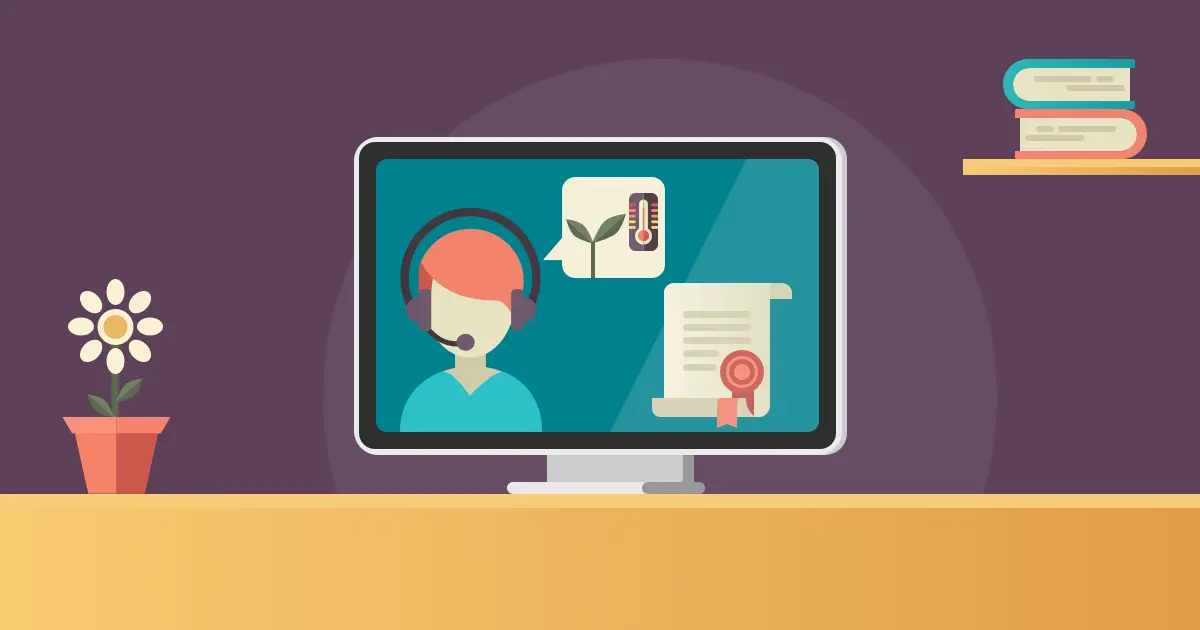
Blog / Let’s deMOOCritize information!
“Knowing, that is, planning to act.” noted Bergson in his book The Creative Evolution (1907). In a world where it seems difficult to escape a continuous flow of information, we would tend to take access to knowledge for granted. But we would still have to have the means to see clearly between information and misinformation, advertising and propaganda. The field of the environment is no exception to the rule: political, geopolitical and financial interests are too important there. So, how can you get information on the subject when you are not a specialist in the field?
Why not through a MOOC1? This acronym means Massive Open Online Course: these are online training courses, open to all and generally free2, accessible from a platform for a predefined period of time (one or two months generally).
Since 2013, they are gaining ground as an educational alternative all over the world. What differentiates them from simple online courses? The possibility to interact with the pedagogical team organizing the MOOC, but also with its participants, often international, to share knowledge, experiences, but also questions. A way to keep an open mind, to rub shoulders with other opinions and practices.
Offered by universities, companies or associations, they exist for all themes: science, religion, marketing, philosophy, personal development, technology… But, since you’re on the PDFMonkey blog, we will obviously focus on some upcooming environment-related MOOC.
You’ve been wondering for months what agroecology is and whether it is really the solution to the current challenges of feeding the entire population of the planet while preserving ecosystems? The Montpellier Sup Agro school of higher education offers a six-week MOOC on the subject, in French and for beginners: from January 31 to March 16, 2020. Registrations are possible until February 20 and the working time is estimated at 4 hours per week. The teaching team is composed of agronomists, ecologists3, sociologists, an economist, an anthropologist and a zootechnician4.
Do you open round eyes when your childhood friend talks to you about circular economics? Don’t worry: the Institute for Environment, Sustainable Development and Circular Economy (EDDEC) has produced a MOOC on the subject. From February 3 to March 23, 2020, professors from the Montreal University, Polytechnique Montreal and HEC Montreal will invite you to rethink the economic system as we know it and in which we participate every day. Registration is open until March 9.
Are you looking for more in-depth training on climate and its evolution throughout the history of the planet, in order to understand global warming? Say no more: three professors from the MIT will be in charge of teaching you about the subject, from February 19 to May 15, 2020, at a rate of two to four hours of work per week. Please note: the training is offered by edX, a platform founded by the MIT and the University of Harvard. The training is therefore conducted in English and, due to US sanctions, is not accessible from Iran, Cuba and the Crimean region of Ukraine.
Would you like to learn more about “sustainable cities”? Good timing, the University of Lund, in Sweden, is offering a MOOC on this theme from February 17 to March 23. It is an opportunity to learn more about transformations and innovations at work in the urban environment, combining theory and practice. This MOOC is available in English.
As you may have guessed, we’ve presented only a tiny overview of all the training courses available on the theme. The idea is not so much to be exhaustive, but rather to make you want to immerse yourself in the fascinating world of MOOC: the exchange of ideas and experiences with teachers and participants from all over the world is just as important, if not more so, than the theoretical content of the courses.
But if you’re frustrated by technology and the virtual world, rest assured: whether you choose to improve your knowledge through a MOOC, an interview, a book or a conversation with your neighbour, the important thing is access to information, the condition of our decisions and the basis of our actions. So, by all means, let’s keep Bergson’s words in mind: let’s get informed, share our ideas and take action for our environment, at our level, day after day. Let’s not be complacent.
-
Pronounce it « mook » please. ↩
-
A paying certificate is sometimes offered by the organizer, after an examination of the knowledge acquired during the MOOC. ↩
-
“A person who studies the natural relationships between the air, land, water, animals, plants, etc.” — dictionary.cambridge.org ↩
-
Specialist of the reproduction and breeding of domestic animals ↩

Yasmina is a geographer. Her travels started when she was very young, through books. It continued when she discovered geograhy in class and then with a bag on her back.